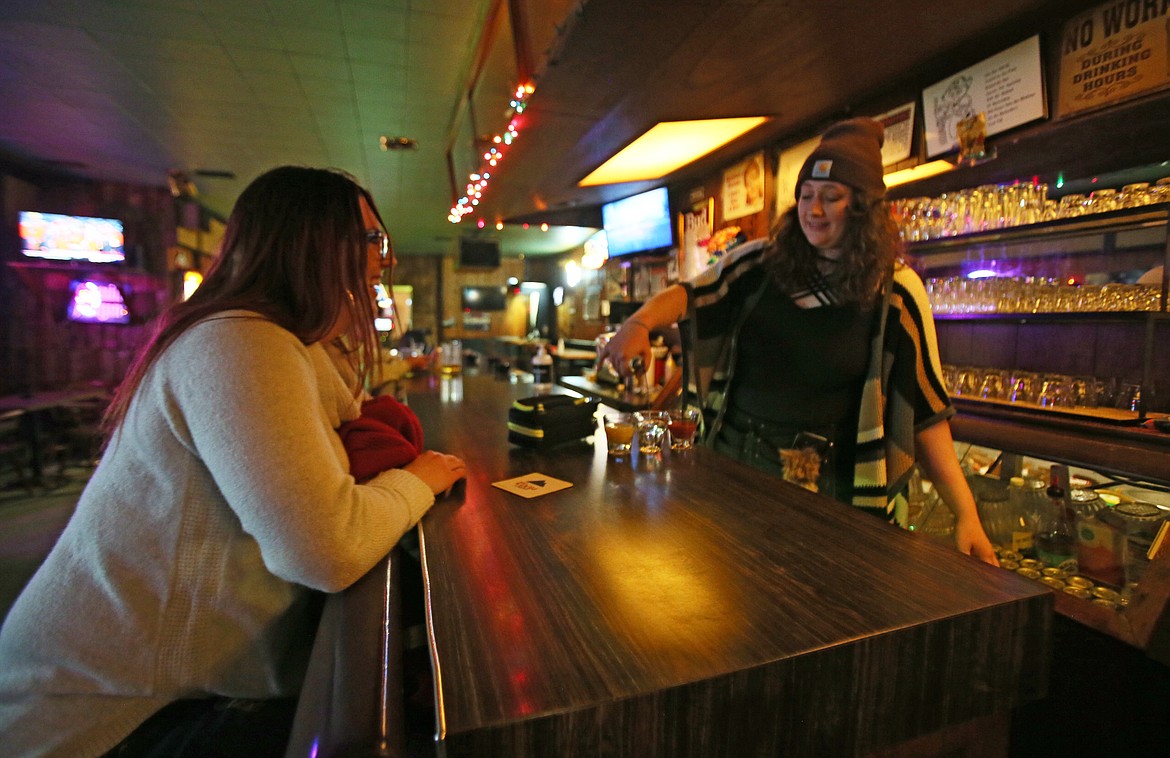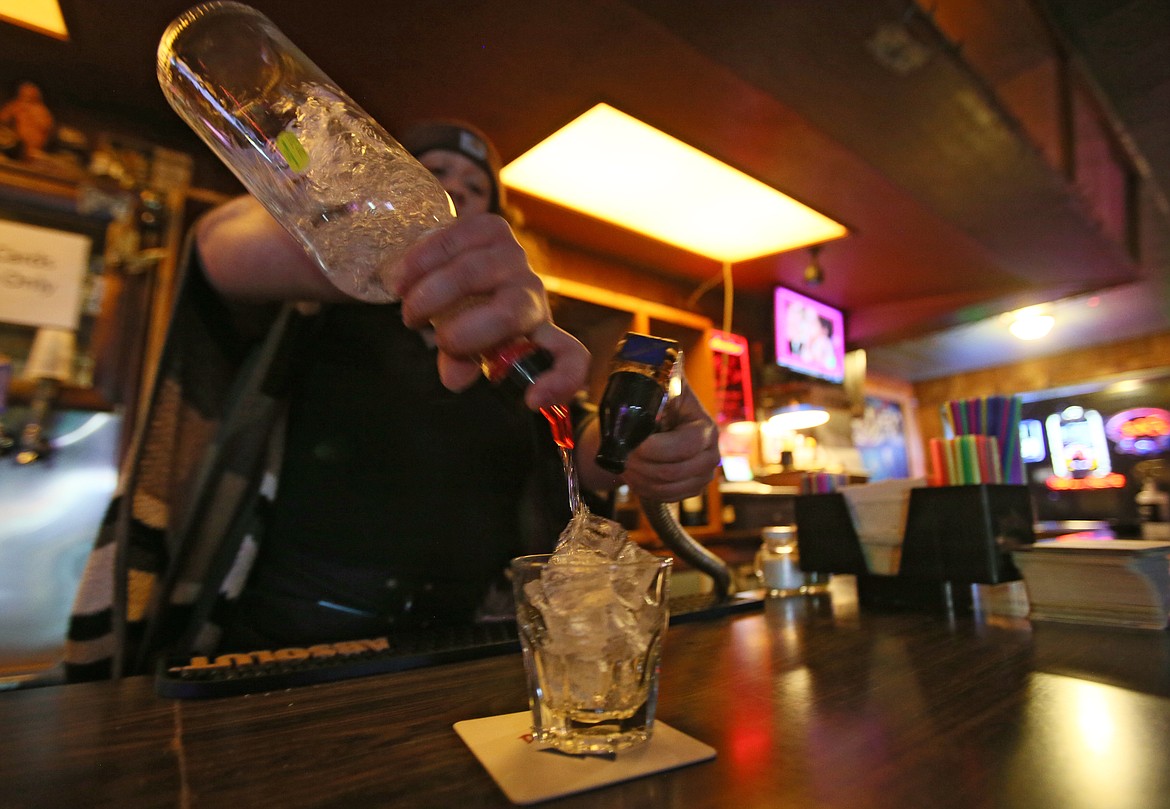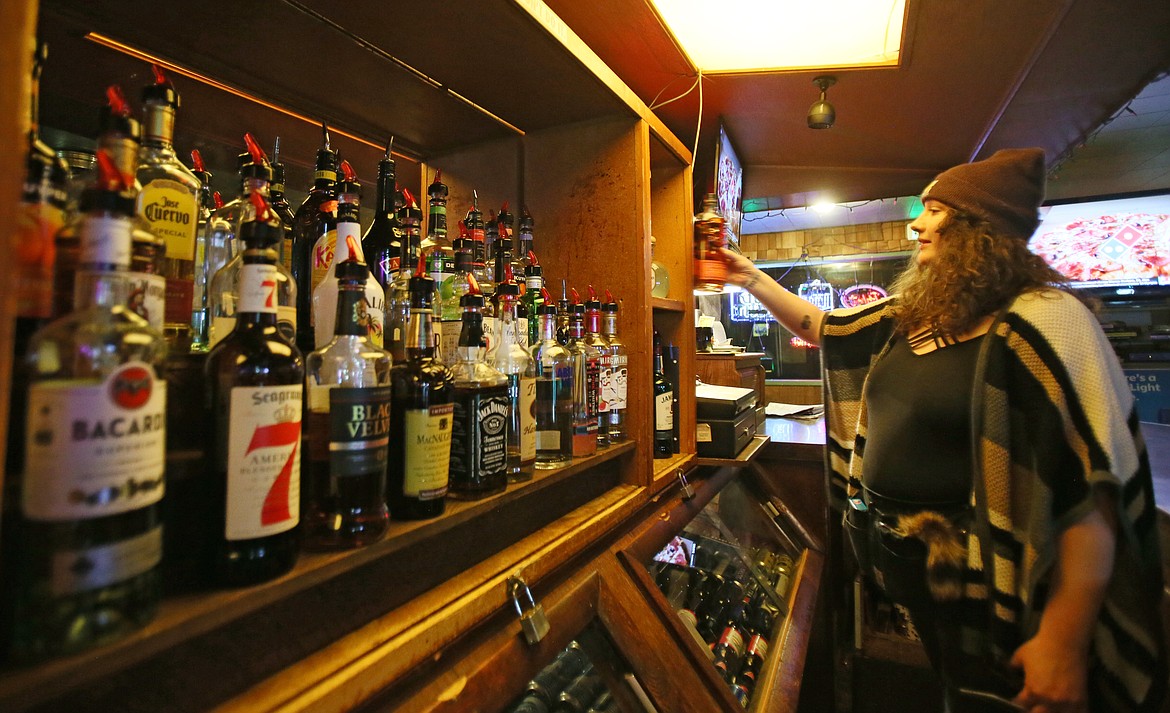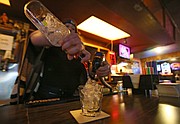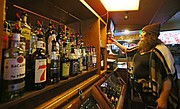Clinking through COVID
It was amusing for some as alcohol jokes drenched the internet while the coronavirus tore through the country like a searing hangover headache.
People joked about being OK because even though they didn't have toilet paper, their liquor cabinets were stocked.
Memes were made about a generation of children being educated by day-drinkers.
Of course many had a field day with Corona beer jokes, for obvious reasons.
Then the days in lockdown lurched on with no end in sight, and the drinking continued.
And continued.
"Everything in moderation," Lakers Inn bartender Jaki Whitmore, of Coeur d'Alene, said Thursday evening. "But I think the moderation rule went out the window."
In 2020, Americans went bottoms up as they clinked their way through COVID. According to a survey of 3,584 drinkers age 21 and older conducted by DrugAbuse.com, a leading provider of substance abuse treatment resources, Americans consumed an average of 17 drinks per week last year.
The Centers for Disease Control defines heavy drinking as "more than 14 drinks per week over the past year for men and more than seven drinks per week for women."
A standard drink is defined as 12 ounces of beer (5% alcohol), 5 ounces of wine (12% alcohol) or 1.5 ounces of liquor (40% alcohol).
Idahoans weren't far behind the national tally, at an average of 14 standard alcoholic beverages each week, or 714 drinks through the whole year. That's about two drinks a day.
Whitmore, who has been a local bartender for 10 years, said Lakers has seen increases in the past four years. But even considering the months the bar was closed for COVID and how it narrowed its clientele to locals only to protect customers, 2020 was a busy year.
"Our sales have been record-breaking," Whitmore said. "People were stuck at home, wanting to have that socialization, and when they did, it just turned into chaos, even."
She said she's seen a lot more day drinking, "people just trying to seize that moment, but not in the best way."
"It's turned into people trying to get as much social interaction as possible, that comes with keeping that good time rolling and drinking more," she said. "Liquor, shots. Anytime anybody comes up to get a beer or a mixed drink, they're getting a shot with it. That's been a go-to now since we reopened."
Lakers manager Kelsey Stevens said that with people being isolated for so long, they've jumped on the chance to get out and socialize again. This has led to people acting out, she said, and being "86'd," or put on the list of those who are too rowdy or wasted to be served.
"Every month we have a handful of people we're 86ing, who have been loyal customers for a while, but they're just not acting the way you should out in public," she said. "We're all down to have fun, it's been a rough year, but we're all in this together and we have to take care of each other."
Jake Bertram, of Coeur d'Alene, works as a cook in a local restaurant and enjoys going out to the bars. He said he's noticed an increase in the number of out-of-staters taking advantage of Idaho's loose COVID restrictions, especially in the past four months.
Bertram said people may have stocked up on liquor at the beginning of the pandemic, but now they're emboldened.
"People in the service industry have been under a lot more stress because of the fact that there's no hazard pay for us to work in the industry to work around people all day who might or might not have COVID," he said. "We have everybody from Washington coming over here and filling up our restaurants and not wearing masks."
Joe McCarron, who founded Idaho Drug-Free Youth and has worked counseling couples, families and youths for more than 30 years, said he found that COVID has accentuated alcohol problems that already existed, or has established new ones.
"It’s not just counting how many drinks you have or didn’t have for a period of time," McCarron said. "It’s the kind of life you were having during these times."
Loneliness, losing one's identity and losing employment can all be tied to COVID, he said.
"I want to add that it’s not just alcohol. It's called 'cross addiction,' or 'addiction transfer,'" he said. "In my small group, I’ve seen an increase in prescription drug use and cocaine use in the last year."
Compulsive and addictive behaviors around food, sex, gambling and gaming have also become more prevalent in the COVID era, he said. He's seen an uptick in domestic violence among the population he serves, as well.
"COVID seems to exacerbate and make things worse," McCarron said.
Some pointers for helping the excessive drinking and other behaviors are keeping a schedule, having family/parental meetings, working on projects, exploring hobbies and attending church, even in the virtual format.
McCarron encourages not just exercise, but "movement."
"I see more families walking around the block now with their dog, and maybe they wouldn't have been doing that before," he said. "Not saying COVID is a good thing, but you know, lemonade out of lemons."
Info: www.drugabuse.com/clinking-to-covid

